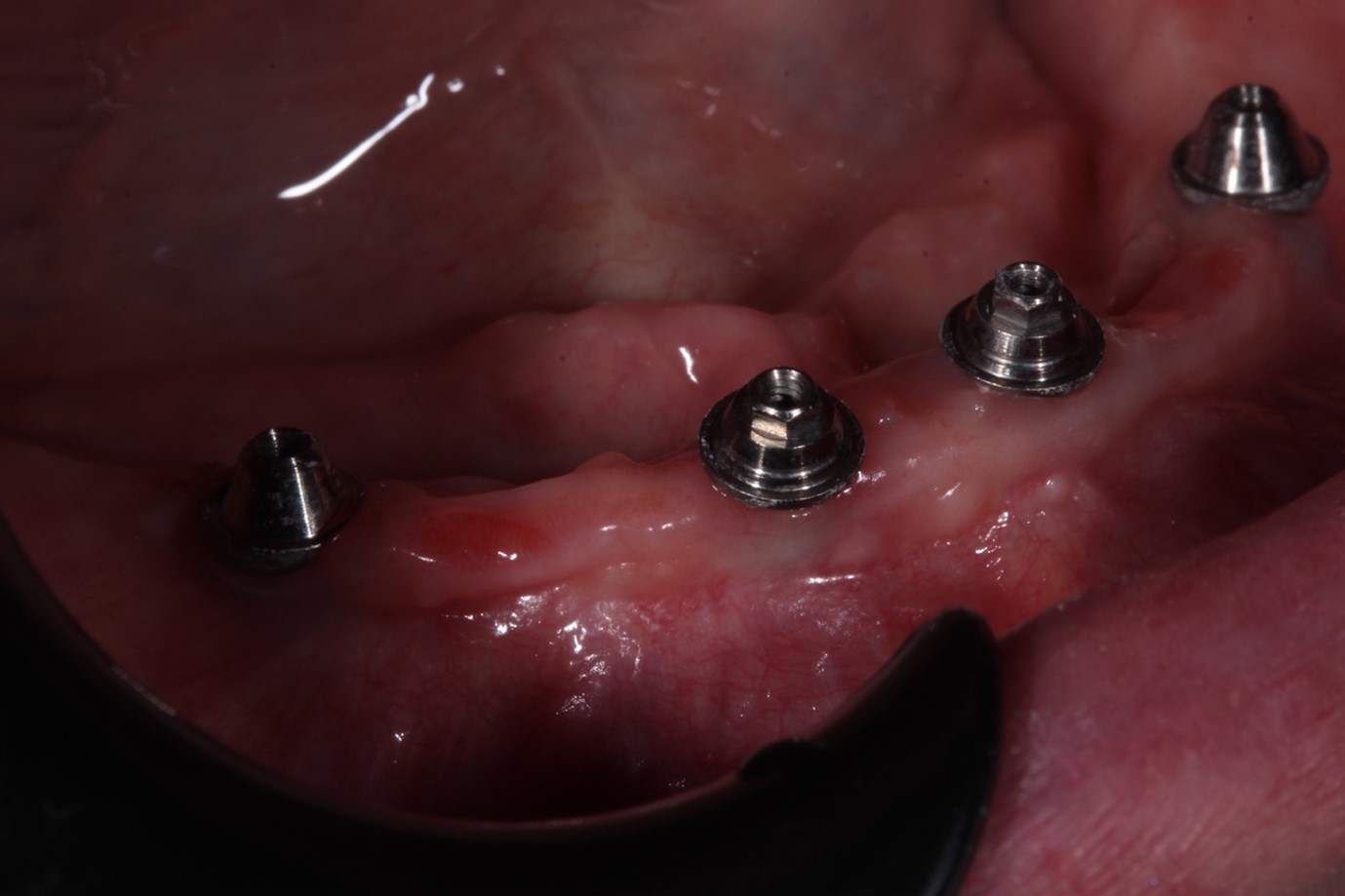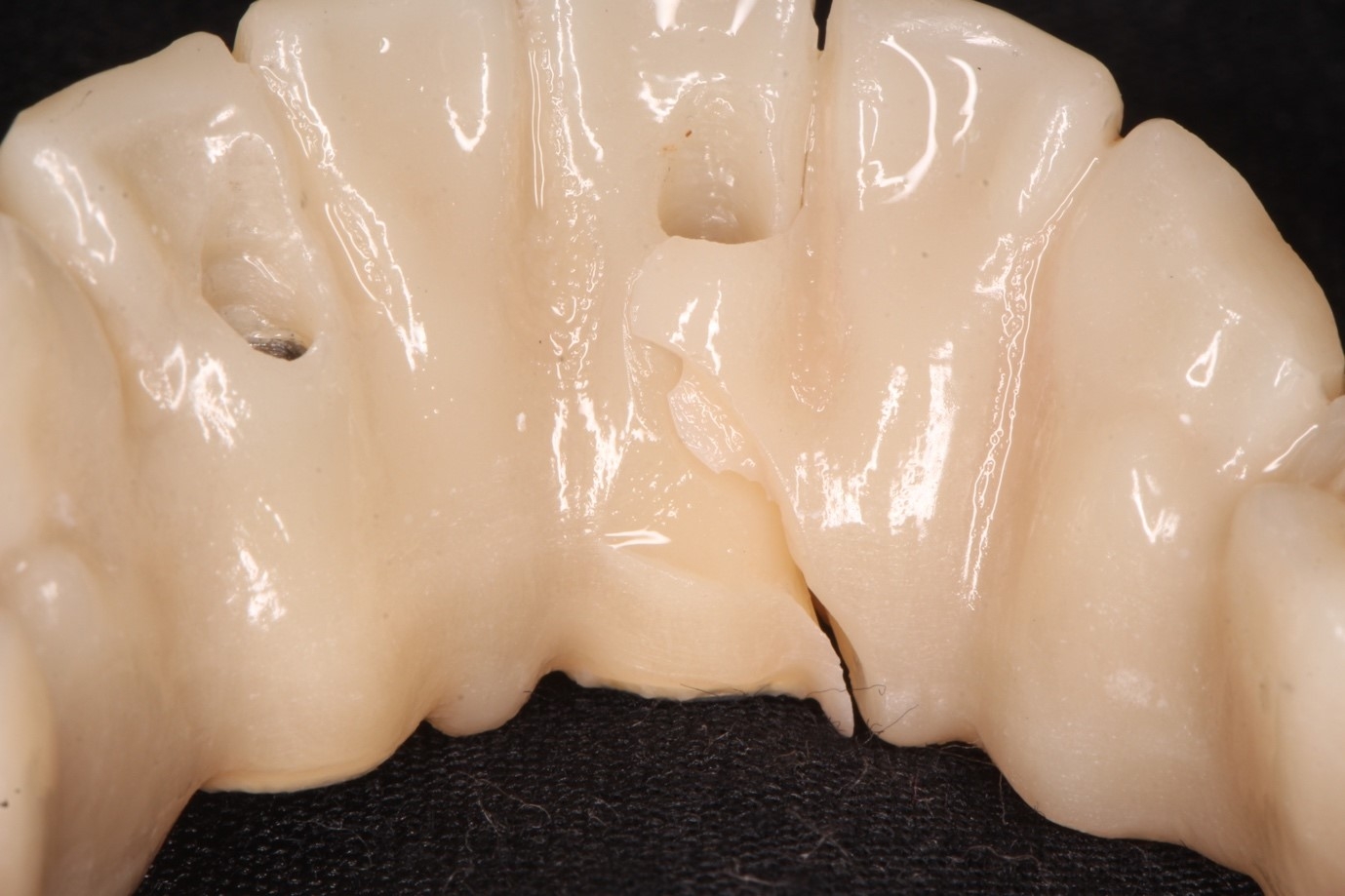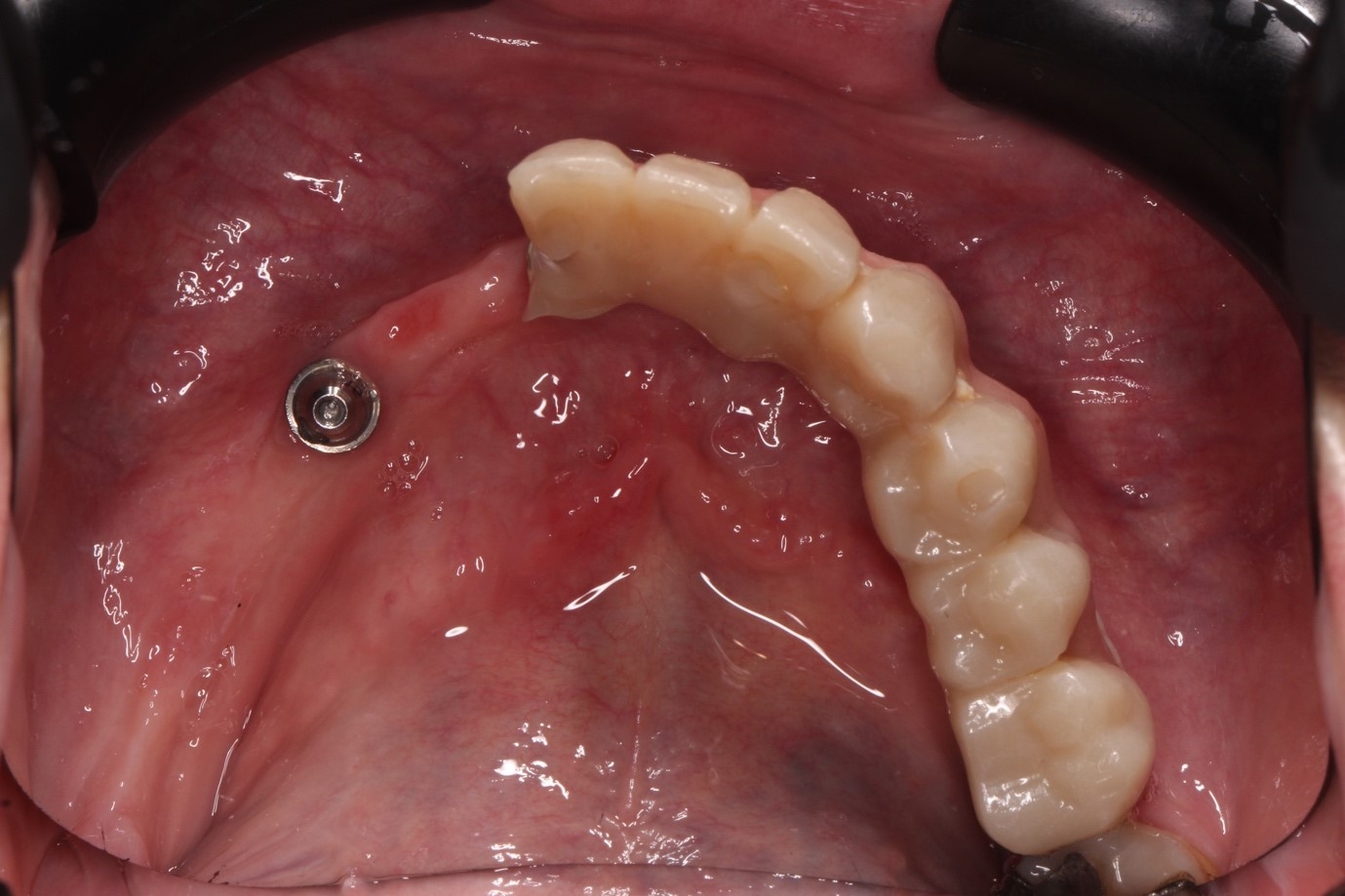IADR Abstract Archives
Fracture of mandibular zirconia full arch implant-supported prosthesis: a case report.
Objectives: Monolithic zirconia full arch implant-supported prostheses have proven to be effective in the management of patients presenting with terminal dentition or edentulism.
Effective treatment planning, prosthetic space analysis, and attention to detail in fabrication can reduce prosthetic complications.
There is a paucity of literature available on the management of fractured zirconia full arch implant-supported prostheses. This aims to add to the available literature.
Methods: Case
This case report describes the management of a 57-year-old female patient with a fracture of a monolithic zirconia full arch implant-supported prosthesis in the mandibular arch supported by 4 abutment-level dental implants. The mandibular prosthesis was placed 1 year prior and opposed a dentate maxilla. The prosthesis fracture occurred down the center of the lower left lateral incisor and presented with a broken implant screw in the same region.
Results: Discussion
Possible causes of the fracture include attachment type, prosthetic material, available prosthetic space, opposing dentition, the arch in which the prosthesis is present, and the number of supporting implants.
Upon careful analysis, passivity was present, the material thickness was sufficient, and the opposing teeth had the same span. Occlusion was balanced and no heavy contacts were present at the location of the fracture. While a distal cantilever was present, there was sufficient anterior-posterior (AP) spread of the implants.
Results
A polymethyl methacrylate (PMMA) temporary prosthesis was manufactured while the laboratory processes a new monolithic zirconia permanent prosthesis.
Conclusions: While the cause of the fracture can be variable, in this case specifically, it appears to be zirconia material fatigue due to manufacturing error or design of the prosthesis. The appropriate material processing times and manufacturers’ guidelines should be accurately adhered to in order to prevent complications in the future. The design of lower incisors should also be taken into consideration as the scalloped shape thereof influences the material thickness and is likely more prone to fracture.
Effective treatment planning, prosthetic space analysis, and attention to detail in fabrication can reduce prosthetic complications.
There is a paucity of literature available on the management of fractured zirconia full arch implant-supported prostheses. This aims to add to the available literature.
Methods: Case
This case report describes the management of a 57-year-old female patient with a fracture of a monolithic zirconia full arch implant-supported prosthesis in the mandibular arch supported by 4 abutment-level dental implants. The mandibular prosthesis was placed 1 year prior and opposed a dentate maxilla. The prosthesis fracture occurred down the center of the lower left lateral incisor and presented with a broken implant screw in the same region.
Results: Discussion
Possible causes of the fracture include attachment type, prosthetic material, available prosthetic space, opposing dentition, the arch in which the prosthesis is present, and the number of supporting implants.
Upon careful analysis, passivity was present, the material thickness was sufficient, and the opposing teeth had the same span. Occlusion was balanced and no heavy contacts were present at the location of the fracture. While a distal cantilever was present, there was sufficient anterior-posterior (AP) spread of the implants.
Results
A polymethyl methacrylate (PMMA) temporary prosthesis was manufactured while the laboratory processes a new monolithic zirconia permanent prosthesis.
Conclusions: While the cause of the fracture can be variable, in this case specifically, it appears to be zirconia material fatigue due to manufacturing error or design of the prosthesis. The appropriate material processing times and manufacturers’ guidelines should be accurately adhered to in order to prevent complications in the future. The design of lower incisors should also be taken into consideration as the scalloped shape thereof influences the material thickness and is likely more prone to fracture.



